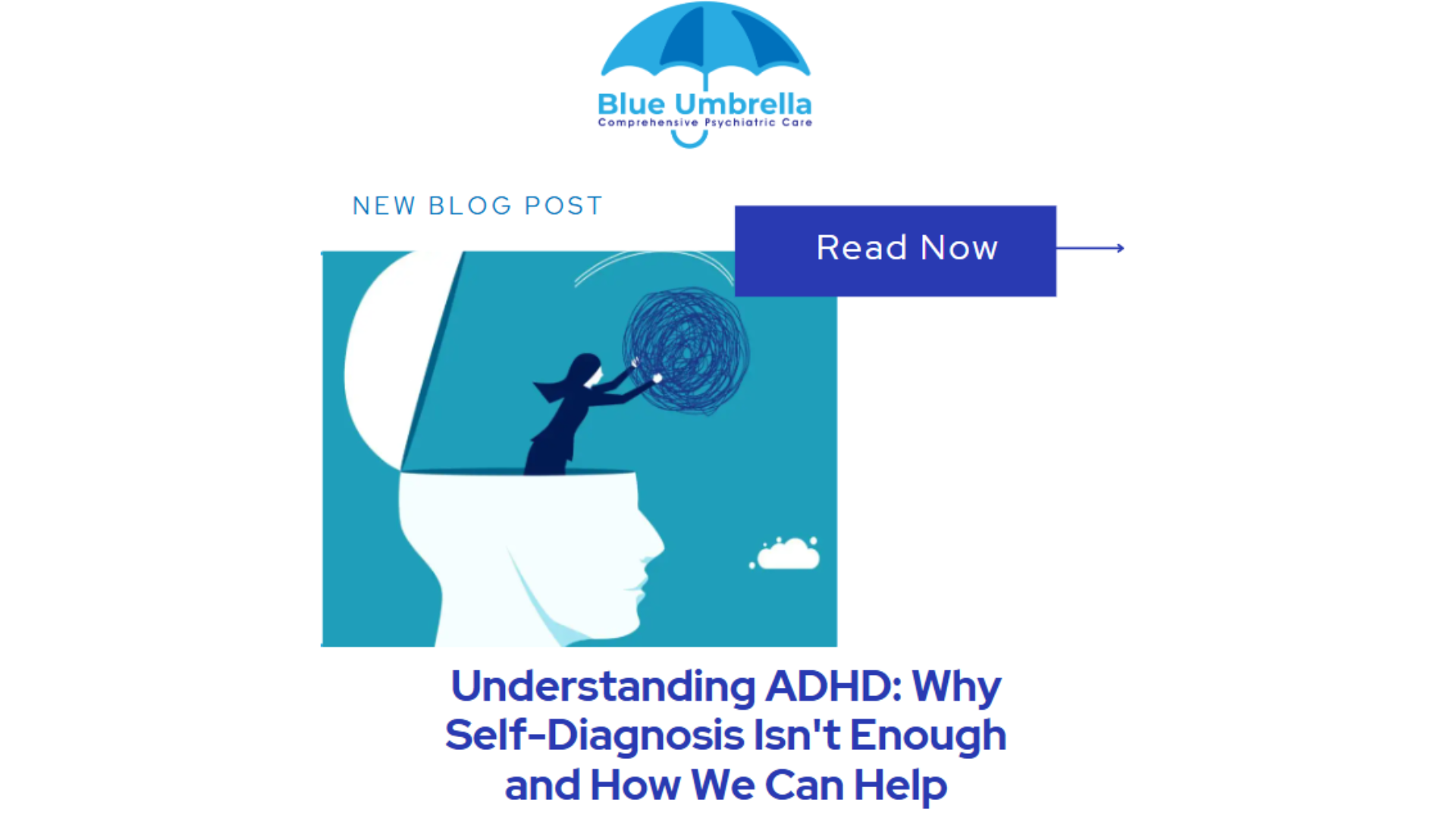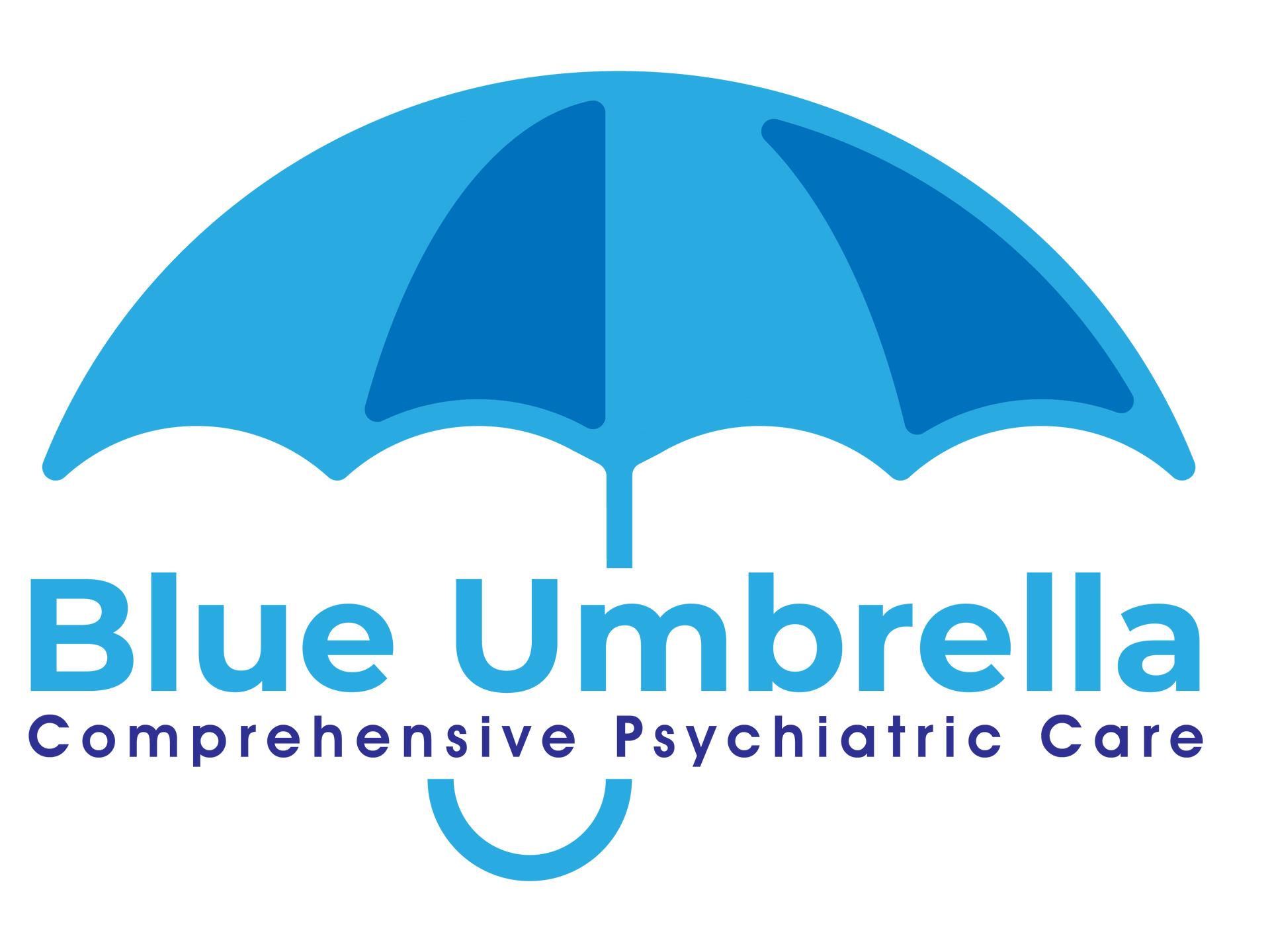At Blue Umbrella Psychiatry, we believe mental health is just as important as physical health. That's why we're dedicated to providing comprehensive and compassionate care to those seeking help. This blog post will explore some general aspects of mental health and the importance of seeking help when you need it.
What is Mental Health?
Mental health refers to our overall emotional, psychological, and social well-being. It affects how we think, feel, and act. It also helps determine how we handle stress, relate to others, and make choices. Why is Mental Health Important? Good mental health can positively impact every aspect of your life. It can:
- Improve your ability to cope with stress
- Enhance your relationships Increase your productivity at work or school
- Boost your physical health
- Promote a sense of well-being
Recognizing When to Seek Help Mental health conditions are surprisingly common. In fact, according to the National Institute of Mental Health, millions of Americans experience a mental illness each year. Here are some signs that you might benefit from professional help:
- Feeling overwhelmed by sadness, anger, or anxiety for long periods
- Having difficulty sleeping or eating
- Experiencing changes in mood or behavior
- Difficulty concentrating or making decisions
- Withdrawing from social activities or hobbies you once enjoyed
- Having thoughts of harming yourself or others
Common Mental Health Conditions
A variety of mental health conditions can impact a person's well-being. Here are some of the most common:
- Anxiety Disorders: These are characterized by excessive worry and fear. Common types include generalized anxiety disorder, panic disorder, social anxiety disorder, and phobias.
- Depression: This is a mood disorder that causes feelings of sadness, loss of interest, and a lack of energy.
- Bipolar Disorder: This condition causes extreme mood swings, ranging from mania (elevated mood and energy) to depression.
- Obsessive-Compulsive Disorder (OCD): This is characterized by intrusive thoughts and repetitive behaviors aimed at reducing anxiety.
- Post-Traumatic Stress Disorder (PTSD): This can develop after exposure to a traumatic event and is characterized by flashbacks, nightmares, and avoidance of triggers.
- Eating Disorders: These conditions involve unhealthy eating habits and a distorted body image. Common types include anorexia nervosa, bulimia nervosa, and binge-eating disorder.
- Attention Deficit Hyperactivity Disorder (ADHD): This condition can cause difficulty with attention, focus, and impulsivity.
Taking the First Step If you're experiencing any of these signs or suspect you might have a mental health condition, know that you're not alone. Seeking help is a sign of strength, not weakness.
Here are some resources to get you started:
- Blue Umbrella Psychiatry: We offer a variety of services to meet your individual needs. Contact us today for a consultation.
- National Alliance on Mental Illness (NAMI): NAMI is a great resource for information and support [ nami national alliance on mental illness ON nami.org].
- National Institute of Mental Health (NIMH): NIMH offers a wealth of information on mental health conditions and treatment options [ National Institutes of Health (.gov) nimh.nih.gov].
- Crisis Text Line: Text HOME to 741741 to connect with a crisis counselor [ crisis text line ON Crisis Text Line crisistextline.org]
Remember, you don't have to go through this alone. Blue Umbrella Psychiatry is here to support you on your journey to mental wellness













